Event Satisfaction Survey Form

This survey is meticulously structured to ensure a seamless experience, incorporating user-friendly input types such as checkboxes, radio buttons, yes/no questions, and select options, minimizing the need for lengthy text responses.
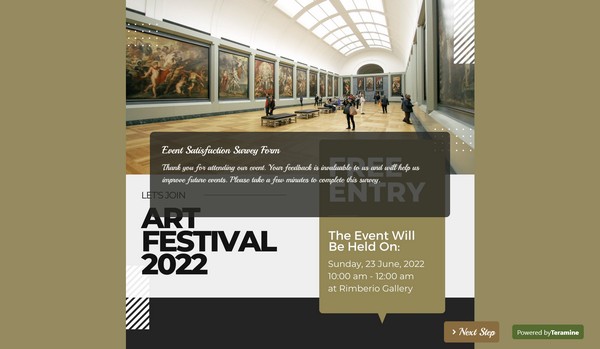
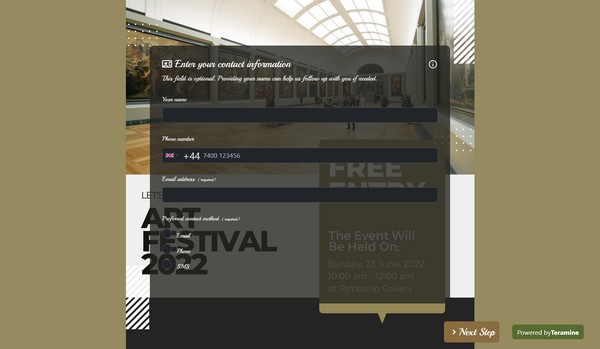
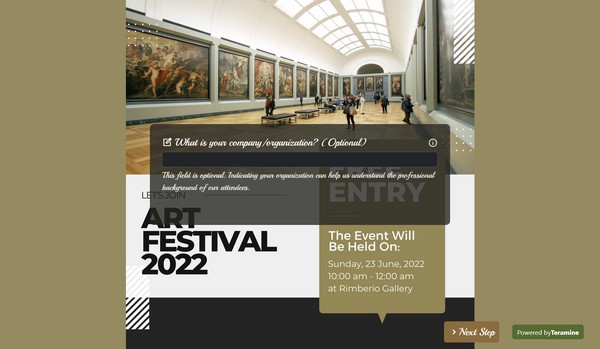
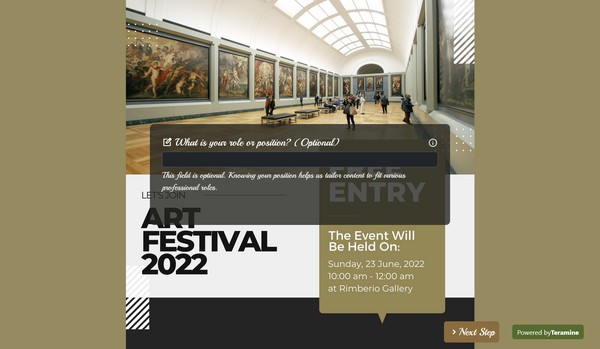
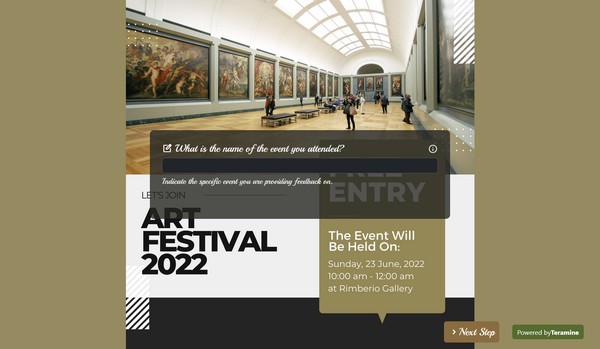
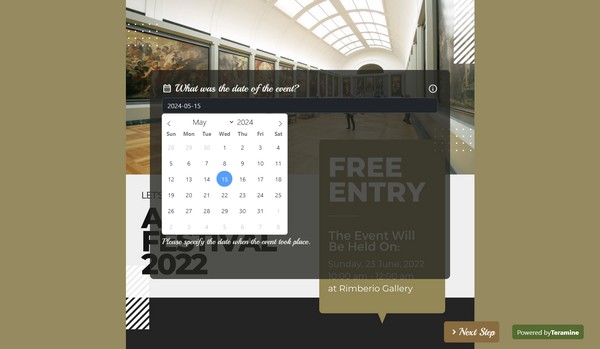
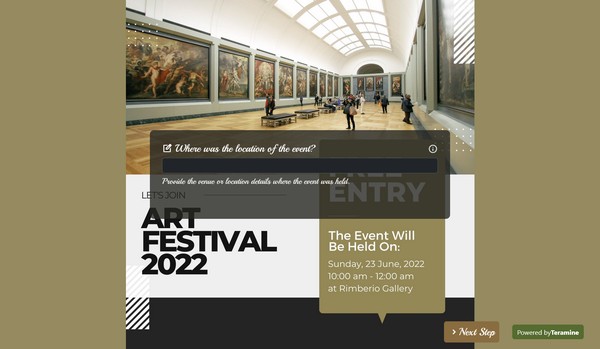
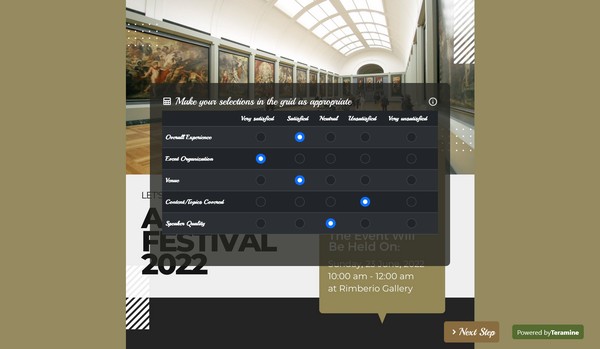
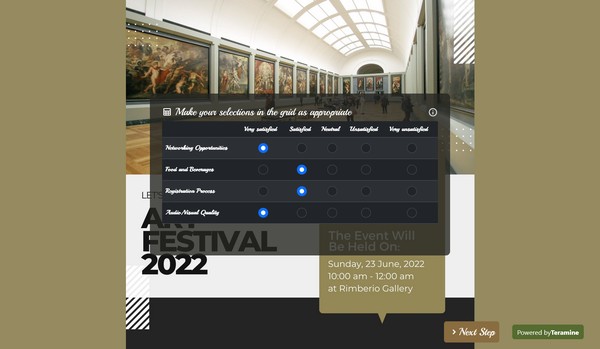
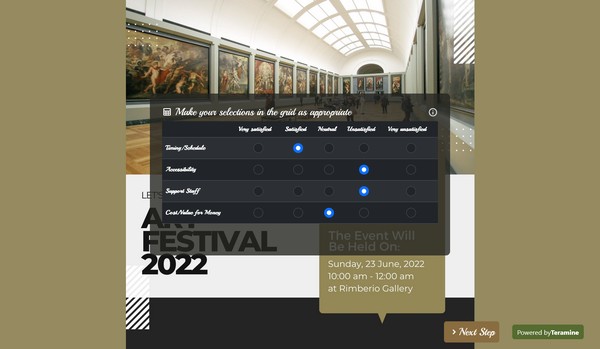
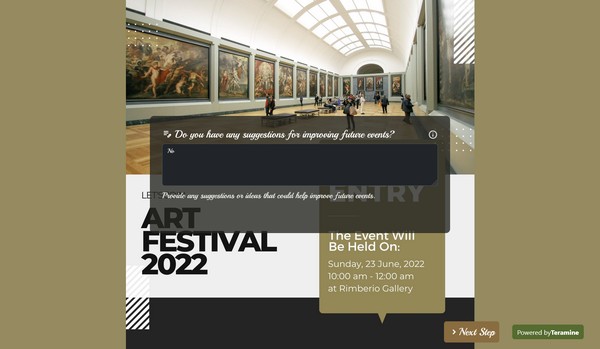
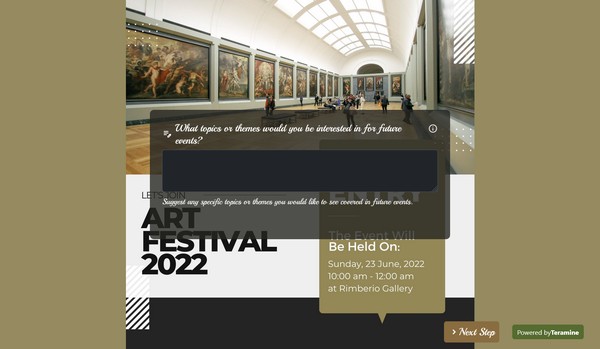
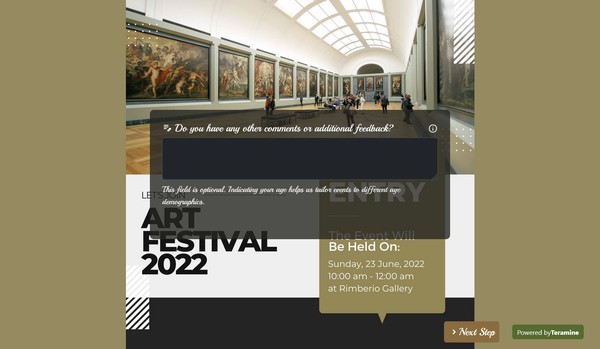

Event Satisfaction Survey Form FAQs
An Event Satisfaction Survey Form is a structured instrument designed to gather feedback from participants regarding their experiences at a specific event. This type of survey serves several key purposes:
Feedback Collection: It enables organizers to collect opinions on various aspects of the event, including logistics, content, speaker effectiveness, and overall enjoyment.
Improvement Opportunities: The insights gained can identify areas that require enhancement for future events, assisting in refining organizational strategies and improving participant experiences.
Data Analysis: The survey yields quantitative and qualitative data that can be analyzed to gauge attendee satisfaction levels and to evaluate the success of the event against predetermined objectives.
Engagement Evaluation: Understanding attendee engagement helps organizers assess the relevance of the event content and format, ensuring alignment with participant expectations.
Typically, the form may include a combination of multiple-choice questions, rating scales, and open-ended questions, covering aspects such as the venue, agenda, speakers, networking opportunities, and overall organization. By implementing an Event Satisfaction Survey Form, organizations can enhance future events and foster a positive relationship with their audience.
An effective Event Satisfaction Survey Form should be designed to gather comprehensive feedback from attendees regarding their experience at the event. Below is a list of essential components that should be included in such a survey:
Introduction:
- Brief introduction explaining the purpose of the survey.
- Assurance of confidentiality and how the feedback will be used.
Event Details:
- Event name
- Date and location of the event
- Type of event (e.g., conference, workshop, networking)
Demographics (optional):
- Participant's role (e.g., attendee, speaker, sponsor)
- Organization or company affiliation
- Industry sector
Overall Satisfaction:
- A scale (e.g., 1-5 or 1-10) for attendees to rate their overall satisfaction with the event.
- Open-ended question for additional comments about overall experience.
Specific Components:
- Sessions and workshops: Rate the relevance and quality.
- Speakers: Evaluate knowledge, engagement, and delivery.
- Venue: Assess location, accessibility, and facilities.
- Networking opportunities: Measure effectiveness of networking sessions.
Logistics and Organization:
- Check-in process: Efficiency and clarity.
- Communication: Clarity of information provided before and during the event.
- Timing and scheduling: Appropriateness of session durations and breaks.
Content Relevance:
- Relevance of topics covered in relation to attendees' expectations and needs.
Value for Time and Money:
- Assessment of perceived value in relation to time spent and registration fees.
Future Improvement Suggestions:
- Open-ended question allowing attendees to provide suggestions for improvement.
Likelihood of Recommendation:
- Question regarding the likelihood of attendees recommending the event to others.
- Intent to Return:
- Question about the likelihood of attendees returning for future events.
- Contact Information (optional):
- Opportunity for respondents to provide their contact details if they wish to receive updates or be entered into a prize draw.
- Closing Thank You:
- A note of appreciation for their time and feedback.
By incorporating these components, your Event Satisfaction Survey Form will be structured to obtain actionable insights that can enhance future events and improve attendee satisfaction.
Utilizing an Event Satisfaction Survey Form provides several key benefits that can enhance both the planning and execution of future events. Here are some of the primary advantages:
Insightful Feedback: Collecting participant feedback allows organizations to understand the strengths and weaknesses of the event. This information can inform decisions on future event planning and improvements.
Improved Attendee Experience: Feedback garnered from surveys can help identify areas for improvement in attendee engagement, logistics, and overall experience, leading to higher satisfaction levels in future events.
Data-Driven Decisions: By analyzing survey responses, event planners can make informed decisions regarding venue selection, content topics, speaker choices, and other critical elements. This reliance on data enhances planning effectiveness.
Benchmarking: Comparing survey results across multiple events provides a valuable benchmark for measuring success over time. Organizations can track improvements and set specific, measurable goals for future events.
Tailored Content: Understanding participant preferences and interests allows for the customization of content and programming, making future events more relevant and engaging for attendees.
Stakeholder Insights: Surveys can provide valuable insights not only for attendees but also for sponsors and partners, helping align their goals with event execution and expectations.
Increased Engagement: Actively seeking feedback can foster a sense of involvement among attendees, encouraging them to engage further with the organization and increasing likelihood of attendance at future events.
Accountability: Having a structured form for gathering feedback instills accountability among event teams to ensure that all components of the event are executed to a high standard.
Cost Efficiency: Understanding what works and what doesn’t can lead to more efficient use of resources, helping to reduce costs associated with future events.
Enhanced Reputation: By demonstrating responsiveness to feedback and a commitment to continual improvement, organizations can enhance their reputation in their industry or community, resulting in increased trust and loyalty among stakeholders.
In conclusion, implementing an Event Satisfaction Survey Form is a strategic approach to gather valuable insights, enhance future event planning, and ultimately improve the overall attendee experience.












